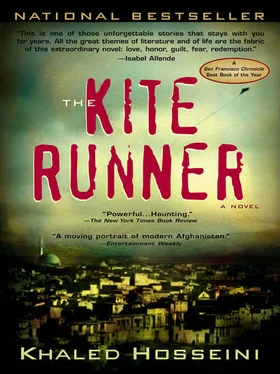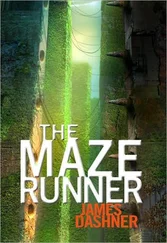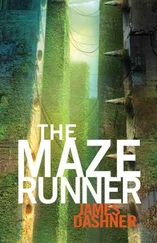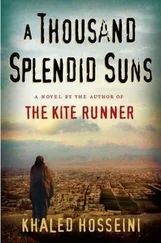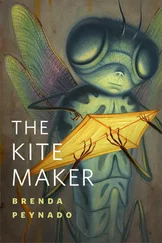The rifle roars with a deafening crack.
I follow the barrel on its upward arc. I see the face behind the plume of smoke swirling from the muzzle. I am the man in the herringbone vest.
I woke up with a scream trapped in my throat.
I STEPPED OUTSIDE. Stood in the silver tarnish of a half-moon and glanced up to a sky riddled with stars. Crickets chirped in the shuttered darkness and a wind wafted through the trees. The ground was cool under my bare feet and suddenly, for the first time since we had crossed the border, I felt like I was back. After all these years, I was home again, standing on the soil of my ancestors. This was the soil on which my great-grandfather had married his third wife a year before dying in the cholera epidemic that hit Kabul in 1915. She’d borne him what his first two wives had failed to, a son at last. It was on this soil that my grandfather had gone on a hunting trip with King Nadir Shah and shot a deer. My mother had died on this soil. And on this soil, I had fought for my father’s love.
I sat against one of the house’s clay walls. The kinship I felt suddenly for the old land… it surprised me. I’d been gone long enough to forget and be forgotten. I had a home in a land that might as well be in another galaxy to the people sleeping on the other side of the wall I leaned against. I thought I had forgotten about this land. But I hadn’t. And, under the bony glow of a half-moon, I sensed Afghanistan humming under my feet. Maybe Afghanistan hadn’t forgotten me either.
I looked westward and marveled that, somewhere over those mountains, Kabul still existed. It really existed, not just as an old memory, or as the heading of an AP story on page 15 of the San Francisco Chronicle . Somewhere over those mountains in the west slept the city where my harelipped brother and I had run kites. Somewhere over there, the blindfolded man from my dream had died a needless death. Once, over those mountains, I had made a choice. And now, a quarter of a century later, that choice had landed me right back on this soil.
I was about to go back inside when I heard voices coming from the house. I recognized one as Wahid’s.
“-nothing left for the children.”
“We’re hungry but we’re not savages! He is a guest! What was I supposed to do?” he said in a strained voice.
“-to find something tomorrow.” She sounded near tears. “What do I feed-”
I tiptoed away. I understood now why the boys hadn’t shown any interest in the watch. They hadn’t been staring at the watch at all. They’d been staring at my food.
WE SAID OUR GOOD-BYES early the next morning. Just before I climbed into the Land Cruiser, I thanked Wahid for his hospitality. He pointed to the little house behind him. “This is your home,” he said. His three sons were standing in the doorway watching us. The little one was wearing the watch – it dangled around his twiggy wrist.
I glanced in the side-view mirror as we pulled away. Wahid stood surrounded by his boys in a cloud of dust whipped up by the truck. It occurred to me that, in a different world, those boys wouldn’t have been too hungry to chase after the car.
Earlier that morning, when I was certain no one was looking, I did something I had done twenty-six years earlier: I planted a fistful of crumpled money under a mattress.
Farid had warned me. He had. But, as it turned out, he had wasted his breath.
We were driving down the cratered road that winds from Jalalabad to Kabul. The last time I’d traveled that road was in a tarpaulin-covered truck going the other way. Baba had nearly gotten himself shot by a singing, stoned Roussi officer – Baba had made me so mad that night, so scared, and, ultimately, so proud. The trek between Kabul and Jalalabad, a bone-jarring ride down a teetering pass snaking through the rocks, had become a relic now, a relic of two wars. Twenty years earlier, I had seen some of the first war with my own eyes. Grim reminders of it were strewn along the road: burned carcasses of old Soviet tanks, overturned military trucks gone to rust, a crushed Russian jeep that had plunged over the mountainside. The second war, I had watched on my TV screen. And now I was seeing it through Farid’s eyes.
Swerving effortlessly around potholes in the middle of the broken road, Farid was a man in his element. He had become much chattier since our overnight stay at Wahid’s house. He had me sit in the passenger seat and looked at me when he spoke. He even smiled once or twice. Maneuvering the steering wheel with his mangled hand, he pointed to mud-hut villages along the way where he’d known people years before. Most of those people, he said, were either dead or in refugee camps in Pakistan. “And sometimes the dead are luckier,” he said.
He pointed to the crumbled, charred remains of a tiny village. It was just a tuft of blackened, roofless walls now. I saw a dog sleeping along one of the walls. “I had a friend there once,” Farid said. “He was a very good bicycle repairman. He played the tabla well too. The Taliban killed him and his family and burned the village.”
We drove past the burned village, and the dog didn’t move.
IN THE OLD DAYS, the drive from Jalalabad to Kabul took two hours, maybe a little more. It took Farid and me over four hours to reach Kabul. And when we did… Farid warned me just after we passed the Mahipar dam.
“Kabul is not the way you remember it,” he said.
“So I hear.”
Farid gave me a look that said hearing is not the same as seeing. And he was right. Because when Kabul finally did unroll before us, I was certain, absolutely certain, that he had taken a wrong turn somewhere. Farid must have seen my stupefied expression; shuttling people back and forth to Kabul, he would have become familiar with that expression on the faces of those who hadn’t seen Kabul for a long time.
He patted me on the shoulder. “Welcome back,” he said morosely.
RUBBLE AND BEGGARS. Everywhere I looked, that was what I saw. I remembered beggars in the old days too – Baba always carried an extra handful of Afghani bills in his pocket just for them; I’d never seen him deny a peddler. Now, though, they squatted at every street corner, dressed in shredded burlap rags, mud-caked hands held out for a coin. And the beggars were mostly children now, thin and grim-faced, some no older than five or six. They sat in the laps of their burqa -clad mothers alongside gutters at busy street corners and chanted “ Bakhshesh, bakhshesh !” And something else, something I hadn’t noticed right away: Hardly any of them sat with an adult male – the wars had made fathers a rare commodity in Afghanistan.
We were driving westbound toward the Karteh-Seh district on what I remembered as a major thoroughfare in the seventies: Jadeh Maywand. Just north of us was the bone-dry Kabul River. On the hills to the south stood the broken old city wall. Just east of it was the Bala Hissar Fort – the ancient citadel that the warlord Dostum had occupied in 1992 – on the Shirdarwaza mountain range, the same mountains from which Mujahedin forces had showered Kabul with rockets between 1992 and 1996, inflicting much of the damage I was witnessing now. The Shirdarwaza range stretched all the way west. It was from those mountains that I remember the firing of the Topeh chasht , the “noon cannon.” It went off every day to announce noontime, and also to signal the end of daylight fasting during the month of Ramadan. You’d hear the roar of that cannon all through the city in those days.
“I used to come here to Jadeh Maywand when I was a kid,” I mumbled. “There used to be shops here and hotels. Neon lights and restaurants. I used to buy kites from an old man named Saifo. He ran a little kite shop by the old police headquarters.”
Читать дальше
